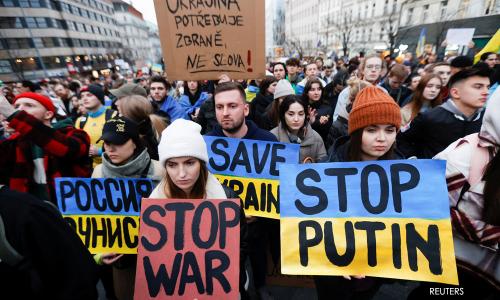COMMENT | Readers' role in truth-seeking during times of war
COMMENT | Prague is about 1,200 km west of Kyiv. If Vladimir Putin is pushed to nuke Ukraine's capital, radioactive dust from the fallout will likely poison all living things in Central Europe and beyond. Think Chernobyl.
Should I return to the safety of Sydney? No, unless my son and his young family are able to leave Prague with me.
Prague's proximity to Kyiv brings an unimaginable nuclear blast conceivably closer to home. The locals are constantly reminded of this possibility. At noon each first Wednesday of every month, air raid sirens wail for two minutes from strategically located loudspeakers.
That's part of Czechian public life – much of it spent commuting daily in the underground Metro. Sections of the mass transit network, built in 1974, also serve as bomb shelters.
There's a long history to Russian intervention in this Slavic landlocked nation – until December 1989 when hundreds of thousands mobilised against the Soviet Union at Wenceslas Square in what became known as the Velvet Revolution.
The peoples' protests ended 40 years of one-party Communist rule. Hence was born the democratic Czech Republic or "Czechia", as it's named in the UN list of member nations.
On the afternoon of Feb 27, I was among the mass of anti-war protesters at Wenceslas – oblivious to a possible Covid cluster. Many, non-masked, were draped in yellow and blue Ukrainian flags. I didn't need to understand Czech to feel the seething hatred for Russia and...
RM12.50 / month
- Unlimited access to award-winning journalism
- Comment and share your opinions on all our articles
- Gift interesting stories to your friends
- Tax deductable

